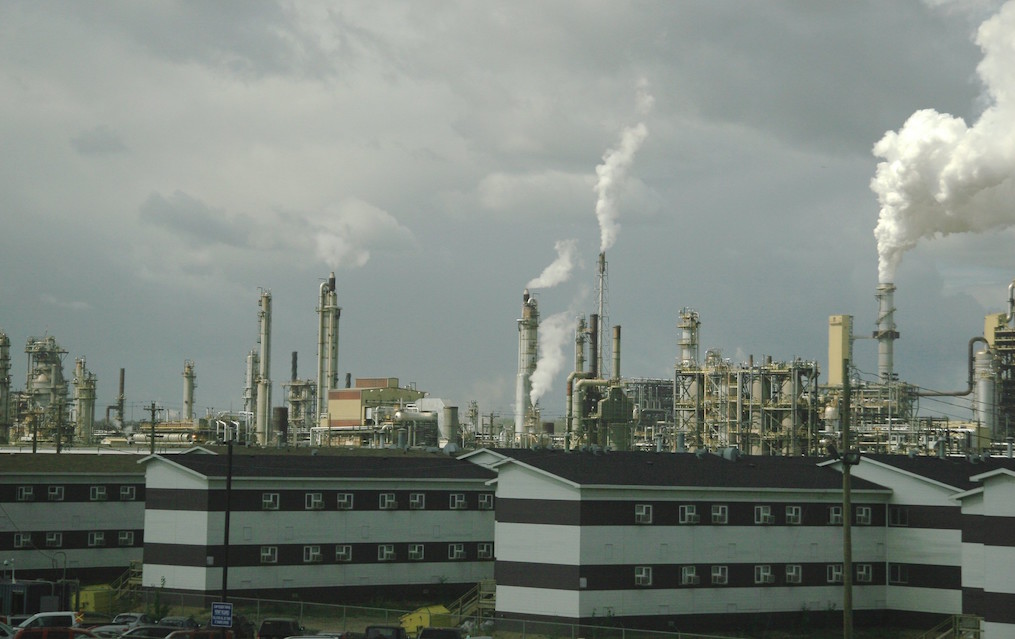Public discourse in Alberta may still be mired in climate-change denial, but the rest of the world is changing, and changing fast.
Even The New York Times, which along with much of the mainstream media in the United States could be accused until recently of seriously underplaying the climate-change story, seems to be getting up to speed on the topic.
In July and so far in August, the Times has published no fewer than 93 news and commentary stories containing the words “climate change” in its pages. Three of them were published yesterday. While a range of interpretations and commentary are found in these articles, the overwhelming theme is that climate change is real, it’s happening now, and the consequences for the planet are serious.
In the context of the policy debate about this topic in Alberta, some of the headlines are very significant, because they give us a hint of the direction the rest of the world is moving, even as Alberta and Saskatchewan continue to debate a question that’s been settled.
Consider this selection of recent Times headlines, chosen not quite randomly to make the point that climate change is now assumed to be a thing, no longer a topic of debate, no matter how angry that makes Alberta Premier Jason Kenney, his “war room,” and their legion of Twitter trolls:
- “Europe’s Heat Wave, Fueled by Climate Change, Moves to Greenland”
- “A More Active Hurricane Season Could Lie Ahead, Scientists Warn”
- “How Hot Was July? Hotter Than Ever, Global Data Shows”
- “Climate Change Fills Storms With More Rain, Analysis Shows”
- “Automakers, Rejecting Trump Pollution Rule, Strike a Deal With California”
- “Moody’s Buys Climate Data Firm, Signaling New Scrutiny of Climate Risks”
The last two in particular should make the blood of the operatives in Kenney’s strategic bunker run cold. After all, there’s nothing that makes your typical UCP mouthpiece angrier than the suggestion that the day is coming when the market for Alberta’s bitumen will shrink, and back in the days of Rachel Notley’s NDP government, there was nothing the conservative opposition liked to shriek about more than a decline in the provincial credit rating given by firms like Moody’s Investors Service.
If climate change is now going to be an assumed reality like gravity, elsewhere if not here, it doesn’t really matter how “ethical” our oil is, and that’s not good news for the Kenney government’s business strategy.
And if those two headlines from the same time frame don’t concern anyone, think about these two:
- “Climate Change Is a Winning Campaign Issue — and President Trump Knows It”
- “Climate Could Be an Electoral Time Bomb, Republican Strategists Fear”
Now, this is not to suggest that Alberta and its equally cranky provincial neighbour to the east are going to go Green any time soon. No, in these places we will hang on to our charming faith in the future of fossil fuels with the determination of a West Virginia coal miner assessing the potential for anthracite.
But it may contain some hints of what’s likely to happen in Canada in October, and in the United States in November 2020.
Political developments in the most important markets for our principal export matter. To put the best possible light on his trip, perhaps that’s the reason Agriculture Minister Devin Dreeshen went south in 2016 to campaign for Donald Trump.
If you think Alberta’s fossil fuel resources are in danger of being turned into a stranded asset now, with a prime minister willing to spend billions buying us a pipeline and expanding it regardless of what abuse we heap on him, imagine what things will look like with an activated U.S. population fearful about climate change and a Democratic president in the White House inclined to do something about it!
As for those who say our Liberal prime minister, Justin Trudeau, is involved in a secret plot to close down oil sands development, there’s really no hope for such people. What Trudeau is doing and former NDP premier Rachel Notley was too is trying to buy a few more years for Alberta’s economic mainstay while we figure out what the hell to do next.
Kenney’s strategy of yelling at anyone who disagrees is not going to prove very effective if the world comes to the conclusion, as now appears to be happening, that climate change is real and an international response to it is urgently required.
The only approach that was likely to work, it’s said here, was Notley’s much reviled “social license” strategy, and given what’s happening, even that had a definite best-before stamp with a date not too far in the future on it.
Even if President Trump is re-elected and federal Conservative Leader Andrew Scheer manages somehow to become prime minister, the respite is bound to be a short one, and our comeuppance will be worse when it happens.
But as the headlines suggest, in the rest of Canada and south of the 49th parallel, climate change increasingly looks like a winning issue, just not for Republican climate-change deniers and their Conservative lookalikes in Canada. This is not a harbinger of a prosperous future for Alberta as currently led.
David Climenhaga, author of the Alberta Diary blog, is a journalist, author, journalism teacher, poet and trade union communicator who has worked in senior writing and editing positions with The Globe and Mail and the Calgary Herald. This post also appears on David Climenhaga’s blog, AlbertaPolitics.ca.




